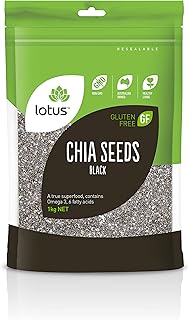Paraguay stands out as the largest producer of chia seeds globally, commanding a significant share of over 40% of the world’s supply. The country’s success in chia farming is attributed to its favorable growing conditions and commitment to sustainable agricultural practices.
Annually, Paraguay yields an impressive 80,000 to 90,000 tonnes of chia seeds, meeting the robust demand from various international markets such as the U.S., Germany, Canada, the Netherlands, and Japan. The regions of Boquerón, Presidente Hayes, and Alto Paraguay play a pivotal role in Paraguay’s chia production, emphasizing rainfed techniques and minimal chemical usage.
Ranking second in chia seed production is Bolivia, known for cultivating chia in areas like Santa Cruz and Chuquisaca. The high-altitude farming in Bolivia contributes to the unique nutrient composition of its chia seeds, with a focus on organic farming methods.
Mexico, as the birthplace of chia, maintains a prominent position in chia production. Regions such as Jalisco, Puebla, and Oaxaca prioritize premium and native chia varieties, often cultivated using traditional farming practices.
Argentina is swiftly expanding its chia farming sector, particularly in provinces like Salta and Tucumán. The country’s advanced agricultural infrastructure and strong export connections position it as a key player in the global chia market.
Nicaragua specializes in organic and fair-trade chia production, catering to the rising demand from Europe and North America. The country’s investments in chia cooperatives and sustainable farming methods underscore its commitment to quality and ethical practices.
Chia seeds boast remarkable properties, including their ability to absorb water up to ten times their weight, making them beneficial for hydration and digestion. Historically, chia seeds held significant value in ancient Aztec and Mayan civilizations, serving as currency, energy sources for warriors, and offerings in religious rites.
Chia seeds are recognized as a complete plant-based protein source, containing all nine essential amino acids essential for a balanced diet, particularly suitable for individuals following vegan or vegetarian lifestyles.
Despite their small size, chia seeds pack a powerful nutritional punch, rich in omega-3 fatty acids, fiber, calcium, magnesium, and antioxidants, establishing them as a nutrient-dense superfood with diverse health benefits.
Moreover, chia seeds can replace eggs in baking recipes, offering a natural egg substitute by mixing chia seeds with water to create a versatile ingredient suitable for vegan baking and individuals with egg allergies.
In conclusion, the global chia seed production landscape highlights the significance of countries like Paraguay, Bolivia, Mexico, Argentina, and Nicaragua in meeting the growing demand for this versatile and nutritious superfood, underscoring the impact of sustainable farming practices and historical significance of chia seeds.
📰 Related Articles
- Singapore Leads Global Tourism Growth with Sustainable Innovation
- Global Chia Seed Market Set to Double by 2035
- Global Chia Seed Market Growth Fueled by Health Trends
- Vitamix Explorian E310: Perfect for Creamy Chia Seed Pudding
- Urgency for Sustainable Coffee Sourcing Amid Global Consumption Rise






